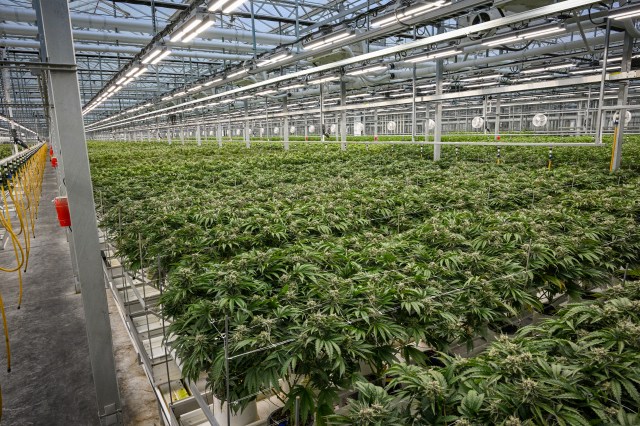Need assistance getting a cannabis business license? Schedule a Free Consultation

Nonprofit organizations in Carroll County are advocating for a new county ordinance stipulating how they will use the tax revenue from the sale of adult-use cannabis in Maryland.
The Board of Carroll County Commissioners heard from agencies at a public hearing Thursday describing how the tax revenue collected from the Maryland’s Community Reinvestment Repair Fund, could be a financial benefit.
Maryland imposes a 9% state sales tax on adult-use cannabis. Per Maryland statute, 35% of the proceeds are allocated to the Community Reinvestment and Repair Fund, which is intended to support communities disproportionately affected by prior cannabis prohibition enforcement.
In the 2023 General Assembly session, lawmakers passed legislation authorizing the state fund to distribute money to communities that a new state Office of Social Equity, in consultation with the attorney general, determines were “the most impacted by disproportionate enforcement of the cannabis prohibition before July 1, 2022.” The social equity office is charged with promoting full participation in the cannabis industry, especially involving people from such communities.
“Part of the adult-use cannabis tax revenue is issued to each jurisdiction across Maryland,” Celene Steckel, director of the county’s Department of Citizen Services said. “We have to develop an ordinance in order to accept that funding.
“The fund most support community-based initiatives that benefit low-income communities, and also communities that have had disproportionately been impacted by the enforcement of cannabis laws,” she said.
The proceeds can be used for the following services:
- Mental health
- After-school programs
- Housing
- Professional development for adults
- Entrepreneurship and economic development
- Nonprofit training
- Workforce development and training
“As you all know, many nonprofits leverage funds whether through state government, federal government, local government, and often times we never have enough,” Scott Yard, executive director of the Department of Human Services of Carroll County, said. “So, additional funds like this would allow us to provide the service, leverage the funds, and help more households.”
Susan Richardson, director of system development and quality improvement with the Carroll County Health Department’s Bureau of Prevention and Recovery, also voiced her support.
“This funding will allow us to leverage and strategically direct resources in collaboration with our community partners,” she said.
Heather Powell, director of the Carroll County Department of Workforce Development, said the funding is needed.
“We see the need for workforce development and the board is limited in the available funds that are coming in through federal government and state entities,” she said. “It’s good to see that this fund supports professional development and economic development and workforce development. We believe this will allow us to extend services into the community.”
Debby Standiford, grants manager for the county, said there will be a committee established to look at what projects should be funded.
As of July 1, 2023, individuals 21 and older can legally use, possess and consume up to 1.5 ounces of cannabis flower, 12 grams of concentrated cannabis, or a total amount of cannabis products that does not exceed 750 mg of THC in Maryland. This amount is known as the “personal use amount.”
But commissioners have been publicly vocal against the sale of recreational cannabis, and have yet to adopt a zoning ordinance regulating marijuana sales in the county. The ordinance has been drafted by the Carroll County Planning Commission, and a public hearing was held.
“It strikes me, almost ironic, we’re talking about something that’s being taxed, causes harm, and leads to some of the things that the tax money is supposed to be used to prevent and to deal with,” District 1 Commissioner Joe Vigliotti said. “The irony is certainly not lost on me.”
Commissioners ultimately voted unanimously Thursday to allow residents another 10 days to comment on the creation of the ordinance detailing how the cannabis tax revenue should be used.




